
Exploring the Heritage of Falasha Village in Gondar
Nestled in the historic city of Gondar, Ethiopia, Falasha Village offers a unique glimpse into the rich cultural tapestry of the Beta Israel community, also known as Ethiopian Jews. This village, steeped in history and tradition, provides an immersive experience for those interested in understanding the diverse cultural heritage of Ethiopia. As you wander through the village, you will be captivated by the traditional mud and straw houses, adorned with intricate designs that reflect the artistic skills of the Falasha people. The village is also home to a synagogue, which stands as a testament to the enduring faith and resilience of the Beta Israel community. Here, you can learn about the customs, rituals, and daily lives of the Falasha people, who have lived in this region for centuries. One of the highlights of visiting Falasha Village is the opportunity to witness the craftsmanship of local artisans. The village is renowned for its pottery and weaving, and you can watch skilled artisans at work, creating beautiful, handmade pottery and vibrant textiles. These unique souvenirs are not only a testament to the village's rich cultural heritage but also a way to support the local economy. To truly appreciate the essence of Falasha Village, take the time to engage with the locals. Their warm hospitality and willingness to share their stories will make your visit even more memorable. Whether you are a history buff, a culture enthusiast, or simply a curious traveler, Falasha Village is a must-visit destination in Gondar.
Local tips in Falasha Village
- Visit the village during the morning to see artisans at work and to avoid the afternoon heat.
- Engage with local guides who can provide deeper insights into the history and culture of the Beta Israel community.
- Purchase handmade pottery and textiles as souvenirs to support local artisans.
- Respect local customs and traditions, particularly when visiting religious sites like the synagogue.
- Consider bringing a translator or learning a few phrases in Amharic to better communicate with the locals.
Exploring the Heritage of Falasha Village in Gondar
Nestled in the historic city of Gondar, Ethiopia, Falasha Village offers a unique glimpse into the rich cultural tapestry of the Beta Israel community, also known as Ethiopian Jews. This village, steeped in history and tradition, provides an immersive experience for those interested in understanding the diverse cultural heritage of Ethiopia. As you wander through the village, you will be captivated by the traditional mud and straw houses, adorned with intricate designs that reflect the artistic skills of the Falasha people. The village is also home to a synagogue, which stands as a testament to the enduring faith and resilience of the Beta Israel community. Here, you can learn about the customs, rituals, and daily lives of the Falasha people, who have lived in this region for centuries. One of the highlights of visiting Falasha Village is the opportunity to witness the craftsmanship of local artisans. The village is renowned for its pottery and weaving, and you can watch skilled artisans at work, creating beautiful, handmade pottery and vibrant textiles. These unique souvenirs are not only a testament to the village's rich cultural heritage but also a way to support the local economy. To truly appreciate the essence of Falasha Village, take the time to engage with the locals. Their warm hospitality and willingness to share their stories will make your visit even more memorable. Whether you are a history buff, a culture enthusiast, or simply a curious traveler, Falasha Village is a must-visit destination in Gondar.
Iconic landmarks you can’t miss
Fasil Ghebbi
Explore Fasil Ghebbi in Gondar, Ethiopia – a UNESCO World Heritage site rich in history and stunning medieval architecture.
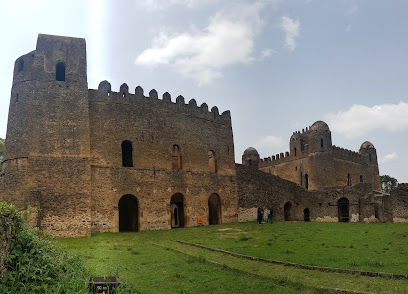
The Four Sisters Restaurant
Savor the authentic flavors of Ethiopia at The Four Sisters Restaurant, where tradition meets taste in a vibrant Gondar setting.
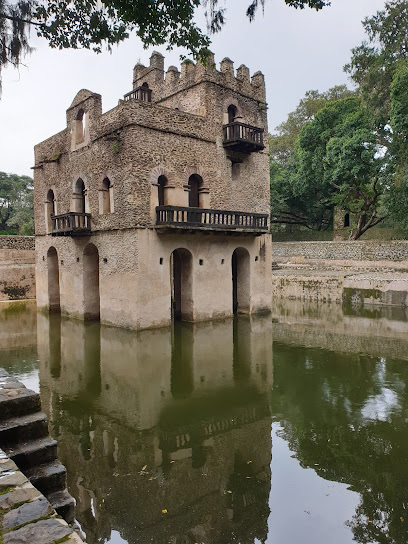
Emperor Fasil’s Palace
Discover the majestic Emperor Fasil’s Palace in Gondar, Ethiopia, a UNESCO World Heritage Site showcasing royal architecture and rich history.
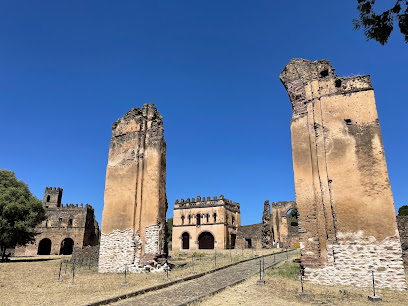
Debre Birhan Selassie Church
Explore the architectural beauty and rich history of Debre Birhan Selassie Church, a highlight of Ethiopian Orthodox culture in Gondar.
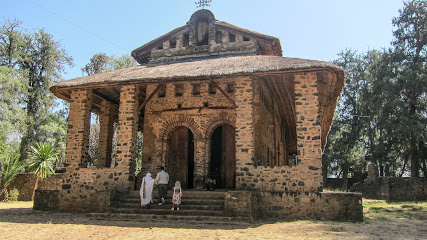
Kusquam Church
Experience the rich heritage of Kusquam Church in Gondar, Ethiopia, where stunning architecture meets deep-rooted spirituality.
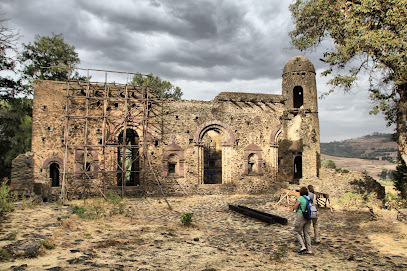
Lodge Fasil
Discover the charm of Gondar at Lodge Fasil, where comfort meets Ethiopian hospitality in a vibrant historical setting.

Royal enclosure- Main Entrance
Explore the Royal Enclosure in Gondar, a UNESCO World Heritage site showcasing Ethiopia's rich history and stunning architecture.
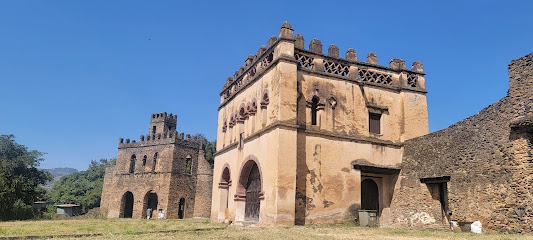
Iyasu's Palace
Discover the grandeur of Iyasu's Palace in Gondar, a historical landmark that invites you to step back in time and explore Ethiopia's rich royal heritage.
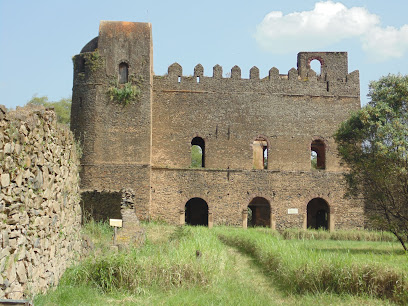
Wolleka (Falasha Village)
Discover the rich heritage of the Falasha community in Wolleka, a unique village near Gondar, steeped in history and tradition.

Synagogue Beta Israel Wolleka
Experience the spiritual heritage and unique architecture of Synagogue Beta Israel in Wolleka, a vital part of Ethiopia's Jewish history.
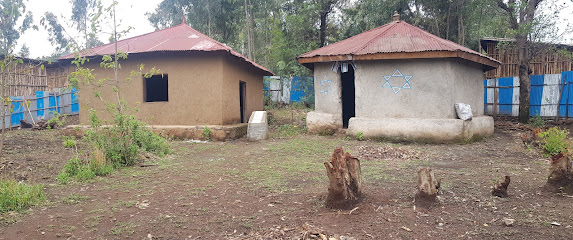
Unmissable attractions to see
Emperor Fasil’s Palace
Explore the architectural wonders of Emperor Fasil’s Palace in Gondar, where history and culture meet in a breathtaking setting.
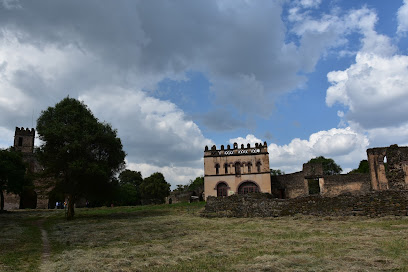
Fasilides' Bath - ፋሲለደስ ጥምቀተ ባህር
Experience the historical elegance and tranquil beauty of Fasilides' Bath in Gondar, Ethiopia—a must-visit attraction for every traveler.
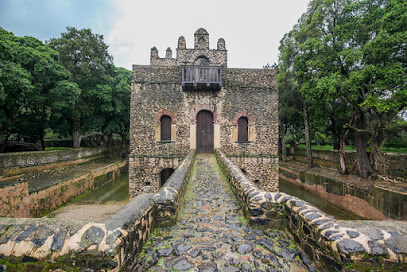
Ethiopian High Land Tours
Discover the enchanting landscapes and rich history of Ethiopia with Ethiopian Highland Tours, your gateway to unforgettable adventures in Gondar.
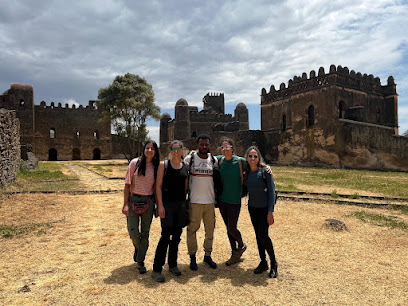
The Fasil Ghebbi (Amharic: ፋሲል ግቢ)
Discover the enchanting Fasil Ghebbi in Gondar, Ethiopia - a UNESCO site rich in history, architecture, and cultural significance, perfect for every traveler.

ቅሀ ወንዝ
Explore the majestic Fasil Ghebbi in Gondar, Ethiopia, a UNESCO World Heritage site rich in history and architectural beauty.

አብሮ አደግ መናፈሻ
Discover the serene beauty of Gonder Park in Gondar, Ethiopia, a perfect blend of nature and history for every traveler.
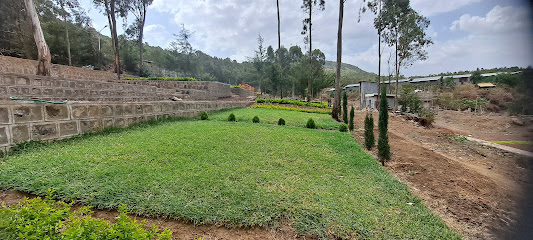
ሳይመን እና ኢሉ
Explore the lush tranquility of Gondar's garden, a vibrant oasis of greenery and history perfect for relaxation and exploration.

Essential places to dine
The Four Sisters Restaurant
Discover authentic Ethiopian flavors at The Four Sisters Restaurant in Gondar - where tradition meets taste in a welcoming atmosphere.
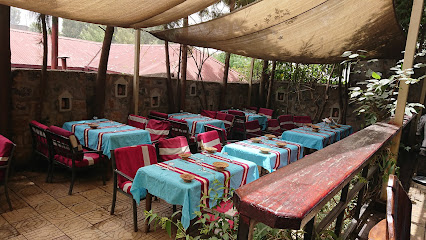
Master Chef Restaurant-bar
Experience the essence of Ethiopian cuisine at Master Chef Restaurant-bar in Gondar – where tradition meets modern dining.
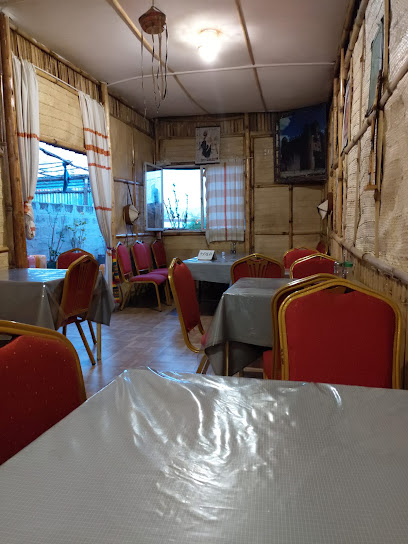
Hawaza Hotel
Discover authentic Ethiopian flavors at Hawaza Hotel in Gondar—a must-visit restaurant for food lovers exploring this historic city.
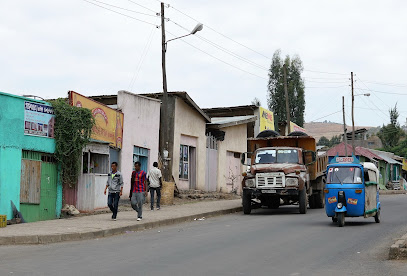
Zoz Amba
Discover authentic Ethiopian flavors at Zoz Amba in Gondar – where culinary tradition meets modern dining.
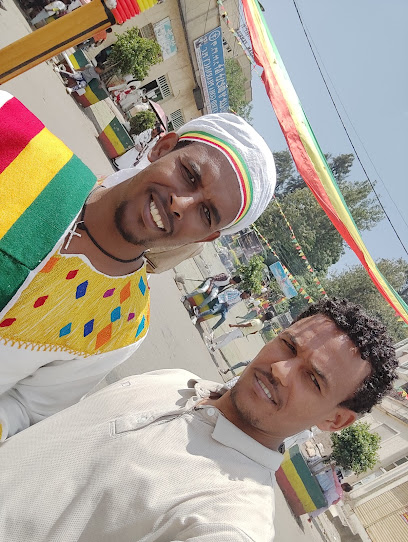
Mini Fogera
Experience authentic Ethiopian cuisine at Mini Fogera in Gondar—where every dish tells a story and every meal is a celebration.
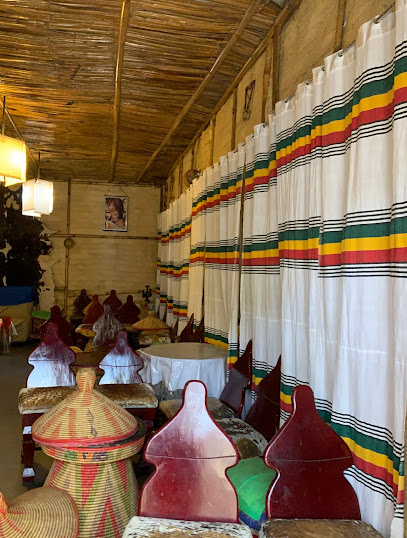
Rain Restaurant
Experience authentic Ethiopian cuisine at Rain Restaurant in Gondar, where traditional flavors meet warm hospitality.
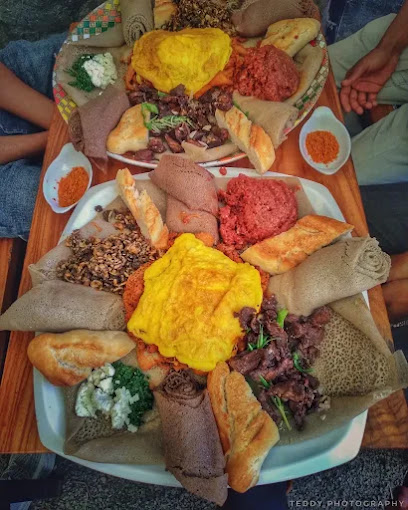
Enibla fast food joint
Experience delicious Ethiopian fast food at Enibla Fast Food Joint in Gondar - perfect for tourists seeking quick and tasty meals.
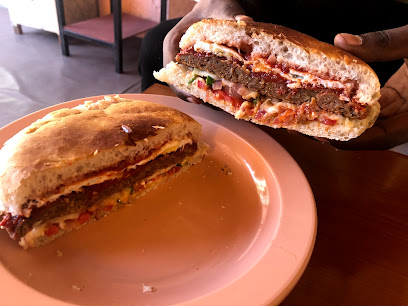
Yalewayeker Hotial
Experience authentic Ethiopian cuisine at Yalewayeker Hotial in Gondar - a must-visit for culinary adventurers.

Bahel
Experience authentic Ethiopian flavors at Bahel in Gondar – where every dish tells a story.

KB
Experience authentic Ethiopian cuisine at KB in Gondar - where every dish tells a story steeped in tradition and flavor.

Markets, malls and hidden boutiques
Tesfaye wubet
Discover unique Ethiopian crafts and home goods at Tesfaye Wubet in Gondar, where local artistry meets warm hospitality.

Tefe Clothing Shop
Explore the vibrant styles of Tefe Clothing Shop in Gondar, where local fashion meets cultural heritage for an unforgettable shopping experience.
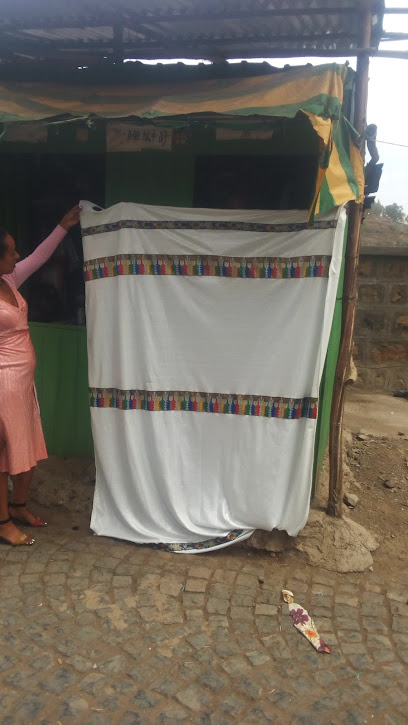
MARAKI BALTNA
Explore Maraki Baltna, Gondar's vibrant shopping mall offering a mix of local crafts and international brands for an unforgettable experience.
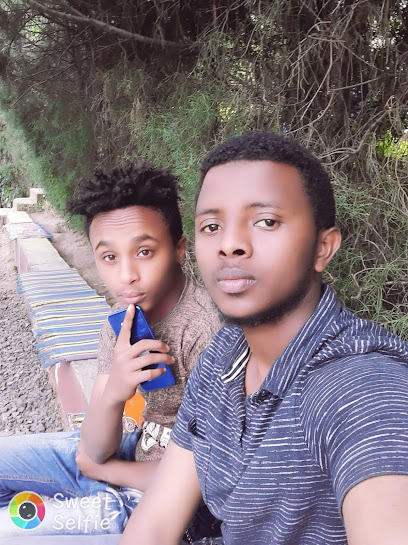
ANWAR AHMED
Explore Anwar Ahmed in Gondar for unique Ethiopian fashion and handcrafted garments that celebrate the local culture and artistry.
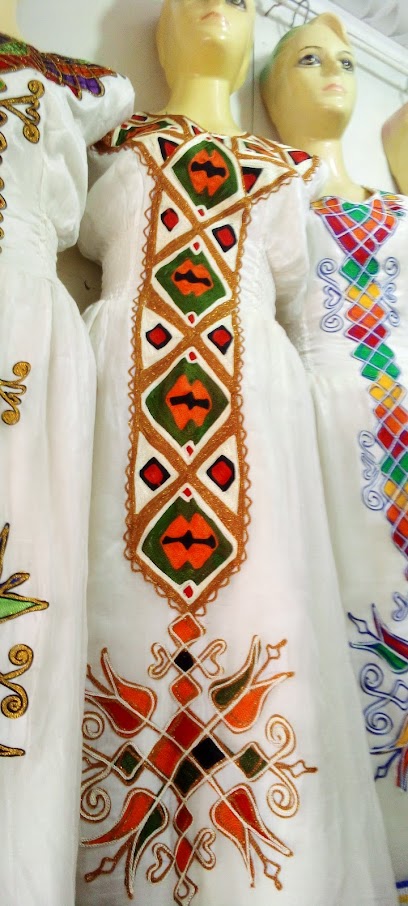
Family Brand Collection
Explore the vibrant and stylish clothing offerings at Family Brand Collection in Gondar, showcasing the beauty of Ethiopian fashion.
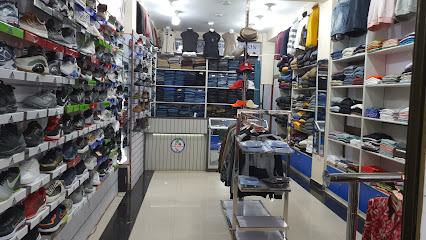
Birhanu Shop
Explore the vibrant culture of Gondar at Birhanu Shop, where unique crafts and friendly faces await every traveler.

Gondar Gotera
Explore the flavors of Gondar at Gondar Gotera, a vibrant grocery store offering fresh local produce and traditional Ethiopian snacks.

Makiva Gemestones &Minerals
Explore the vibrant world of gemstones and minerals at Makiva in Gondar, Ethiopia - a treasure trove of natural beauty awaits!
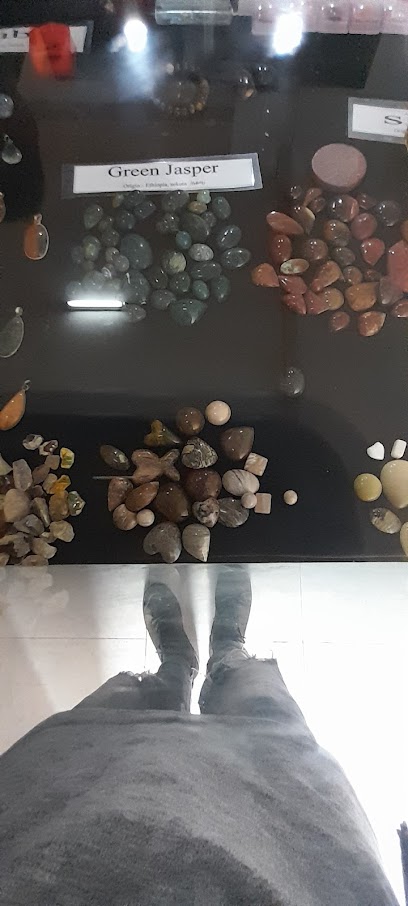
Tsigerda
Discover unique gifts and authentic Ethiopian crafts at Tsigerda, the charming gift shop in Gondar.

Brand Suits and Collection
Discover exquisite fashion at Brand Suits and Collection in Gondar, the ideal destination for stylish suits and exceptional customer service.
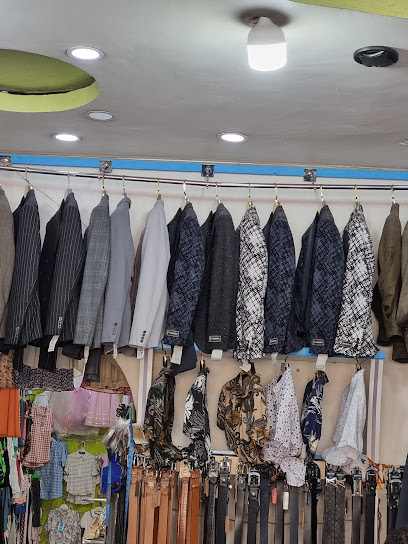
Essential bars & hidden hideouts
Bar Balageru
Discover the lively atmosphere of Bar Balageru in Gondar, where locals and travelers unite over drinks and good conversation.
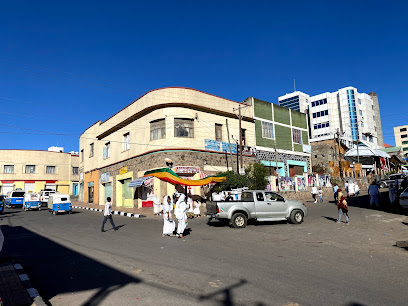
Decent Pub
Discover the lively spirit of Gondar at Decent Pub, where local culture meets a vibrant atmosphere for an unforgettable experience.
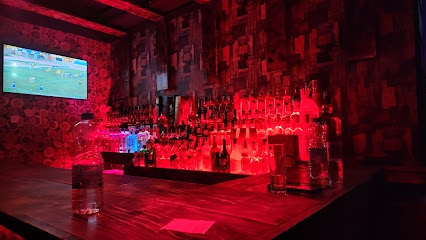
INFINITY BAR & LOUNGE
Experience the vibrant nightlife of Gondar at Infinity Bar & Lounge, where cool drinks and great music create the perfect atmosphere for socializing.
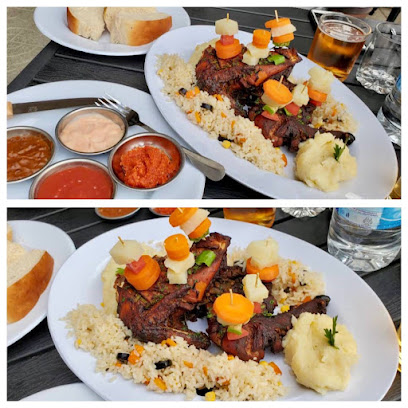
Gojo bar & restorant
Discover the vibrant essence of Gondar at Gojo Bar & Restaurant, where local flavors and warm hospitality await every traveler.
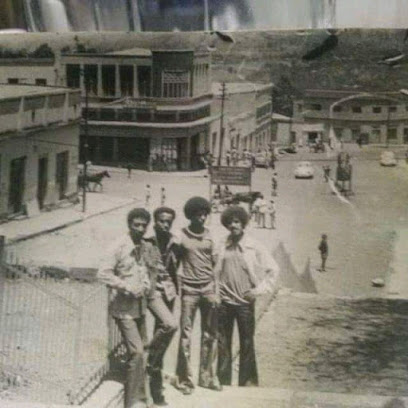
Admasu Grocery
Experience the vibrant atmosphere of Admasu Grocery in Gondar, where local drinks and friendly faces await every visitor.

Genfun Pub
Discover the lively Genfun Pub in Gondar, Ethiopia - a perfect blend of local culture, great drinks, and an inviting atmosphere.

Affinity bar, and restaurant
Discover the charm of Affinity Bar in Gondar, where lively ambiance meets exquisite drinks in a welcoming atmosphere.

Selam Grocery
Experience the lively ambiance and local flavors at Selam Grocery, a charming bar in the heart of Gondar, Ethiopia.

Teddy gerosery
Experience the vibrant atmosphere and local charm at Teddy Gerosery, the perfect bar to unwind in Gondar, Ethiopia.

Cinema di Gondar
Experience the vibrant nightlife of CeneGondar at Cinema di Gondar, where Ethiopian culture and entertainment come alive in an inviting bar atmosphere.

Local Phrases
-
- Helloሰላም
[sälam] - Goodbyeወደላይ
[wädalay] - Yesአዎ
[awo] - Noአይ
[ay] - Please/You're welcomeእባክዎ
[ebakäwo] - Thank youአመሰግናለሁ
[amäsägänalähu] - Excuse me/Sorryበደህና ላይ
[bädhana lay] - How are you?እንዴት ነህ?
[ändet neh?] - Fine. And you?ጠበሳም. እኔም?
[täbesam. enem?] - Do you speak English?እንዴት እነሱን እንቀበል?
[ändet enäsun enkäbel?] - I don't understandአልተወላገፈኝም
[alätwalagafängem]
- Helloሰላም
-
- I'd like to see the menu, pleaseመናፍቃን ቅንጣት ያለኝ እባክዎ
[manafäqan qäntat yalängä ebakäwo] - I don't eat meatእስከ አምጪ አይኖት
[äskä amchi ayenot] - Cheers!እንቁጣጣና!
[enqutatana] - I would like to pay, pleaseእባክዎ እንዴት ይገናኛል
[ebakäwo ändet yigänagal]
- I'd like to see the menu, pleaseመናፍቃን ቅንጣት ያለኝ እባክዎ
-
- Help!እገልጋለሁ!
[egelägalähu] - Go away!እንዳይሆን!
[ändayihon] - Call the Police!ፖሊስ አግኝታ!
[polis agänita] - Call a doctor!ዶክተር አግኝታ!
[doktär agänita] - I'm lostተራራም ነኝ
[tararam nega] - I'm illምልምል ነኝ
[milmil nega]
- Help!እገልጋለሁ!
-
- I'd like to buy...እባክዎ ... ይገበራል
[ebakäwo ... yigäbäräl] - I'm just lookingእባክዎ ገብተኛ ነኝ
[ebakäwo gäbtägana nega] - How much is it?እንዴት ነው እባክዎ?
[ändet new ebakäwo?] - That's too expensiveይህ ታክሲ ነው
[yih takisi new] - Can you lower the price?እባክዎ እንዴት በመንገድ ወደዋል?
[ebakäwo ändet bämänged wedwal]
- I'd like to buy...እባክዎ ... ይገበራል
-
- What time is it?ሰዓት ማን ነው?
[sä'at man new?] - It's one o'clockአንድ ሰዓት ነው
[and sä'at new] - Half past (10)አምስት እና ሰምተኛ
[amist ena smetenga] - Morningጥዋት
[tawat] - Afternoonከምሽሪ
[kemshiri] - Eveningምሽሪ
[mishiri] - Yesterdayትናንት
[tanat] - Todayዛሬ
[zare] - Tomorrowነገር
[neger] - 1አንድ
[and] - 2ሁለት
[hulet] - 3ሶስት
[sost] - 4አራት
[arat] - 5አምስት
[amist] - 6ስድስት
[sädäst] - 7ሰባት
[säbat] - 8ስምንት
[simint] - 9ዘጠኝ
[zätän] - 10አስር
[asir]
- What time is it?ሰዓት ማን ነው?
-
- Where's a/the...?ወይም የሚገኘው ቦታ ማን ነው?
[wäyäm yämignew botat man new?] - What's the address?አድራጎት ምን ነው?
[adragot min new?] - Can you show me (on the map)?እባክዎ እንዴት እርምጃ ለማድረግ?
[ebakäwo ändet ermiya lemadärge] - When's the next (bus)?መልካም ነገር ለማቀናበር?
[melakam neger lemakänabär] - A ticket (to ....)ትኬት (ወይም ወደ ....)
[tiket (wäyäm wede ...)]
- Where's a/the...?ወይም የሚገኘው ቦታ ማን ነው?
History of Falasha Village
-
Falasha Village, known for its historic significance to the Jewish community in Ethiopia, has roots that trace back to the ancient Kingdom of Aksum. The term 'Falasha' is often used to describe Ethiopian Jews, who assert a lineage that connects them to the biblical tribes of Israel. The community has long been recognized for its unique cultural practices and traditions, which blend local Ethiopian customs with religious observances.
-
The culture of Falasha Village is deeply intertwined with Jewish religious practices, which include the observance of the Sabbath and specific dietary laws. The community traditionally focuses on agricultural activities, which are often linked to their religious calendar. Their unique interpretation of Judaism has led to the establishment of synagogues and schools, serving as centers for both worship and education.
-
For centuries, the Falasha community faced significant challenges, including isolation from mainstream Ethiopian society and periodic persecution. This isolation contributed to the preservation of their distinct cultural identity, but also led to social and economic hardships. In the 19th and early 20th centuries, many Falashas were forced into labor as a means of survival, often working the lands of local Christian landowners.
-
A pivotal moment in the history of Falasha Village occurred in 1984 with Operation Moses, a covert operation that facilitated the immigration of Ethiopian Jews to Israel. During a time of famine and civil unrest in Ethiopia, thousands of Falashas made the perilous journey to Sudan, where they were airlifted to Israel. This event not only marked a significant transition for the community but also brought international attention to their plight and cultural heritage.
-
In recent years, there has been a renewed interest in the culture of Falasha Village, both within Ethiopia and internationally. Efforts are being made to preserve the unique traditions, language, and practices of the community. Initiatives aimed at cultural education and tourism have emerged, contributing to a broader understanding of the Ethiopian Jewish experience and fostering connections between past and present.
Falasha Village Essentials
-
Falasha Village is situated just a few kilometers from the center of Gondar. To reach it, you can take a local minibus (known as a 'baja') from the main bus station in Gondar. The journey typically lasts about 10-15 minutes. Taxis are also available and can be hired for a more comfortable, direct route. Alternatively, if you prefer to walk, the village is accessible on foot, allowing you to enjoy the scenic surroundings.
-
Falasha Village is compact, making it easy to explore on foot. Most attractions can be reached by walking. For longer distances, local taxis or bajaj (three-wheeled vehicles) are convenient options. Renting a bicycle can also be a great way to see the area at a leisurely pace.
-
Falasha Village is relatively safe for tourists, but it's wise to exercise caution. Petty crimes, such as pickpocketing, can occur, especially in crowded areas. Avoid displaying valuables and be vigilant in busy markets. It is best to stay away from poorly lit areas at night and to seek local advice on which parts of the village to avoid after dark.
-
In case of an emergency, dial 911 for police assistance or visit the nearest medical facility in Gondar. It is advisable to have travel insurance that covers medical emergencies. Familiarize yourself with the location of the nearest hospital and local police station upon arrival. For minor health issues, local pharmacies can be found within Gondar.
-
Fashion: Do dress modestly, respecting local customs. Women should wear dresses or long skirts and blouses, while men should avoid shorts. Religion: Do respect the religious practices of the local Jewish community. Photography may be restricted in certain areas, so always ask first. Public Transport: Do be polite when using public transport and offer your seat to elders. Don't engage in loud conversations. Greetings: Do greet locals warmly with a handshake or a nod. Eating & Drinking: Do try traditional dishes offered by locals and always ask before eating. Don’t waste food, as it can be seen as disrespectful.
-
To experience Falasha Village like a local, participate in community events, such as festivals or market days, if your visit coincides with them. Engage with residents; they are often eager to share their history and culture. Visit local artisan shops to purchase handmade crafts, and don't hesitate to sample street food, which is a staple of daily life in the village.
Nearby Cities to Falasha Village
-
Things To Do in Bahir Dar
-
Things To Do in Lalibela
-
Things To Do in Axum
-
Things To Do in Mekele
-
Things To Do in Debre Markos
-
Things To Do in Adi Quala
-
Things To Do in Teseney
-
Things To Do in Mendefera
-
Things To Do in Dekemhare
-
Things To Do in Adi Keyh
-
Things To Do in Asmara
-
Things To Do in Keren
-
Things To Do in Addis Ababa
-
Things To Do in Dikhil
-
Things To Do in Dire Dawa








